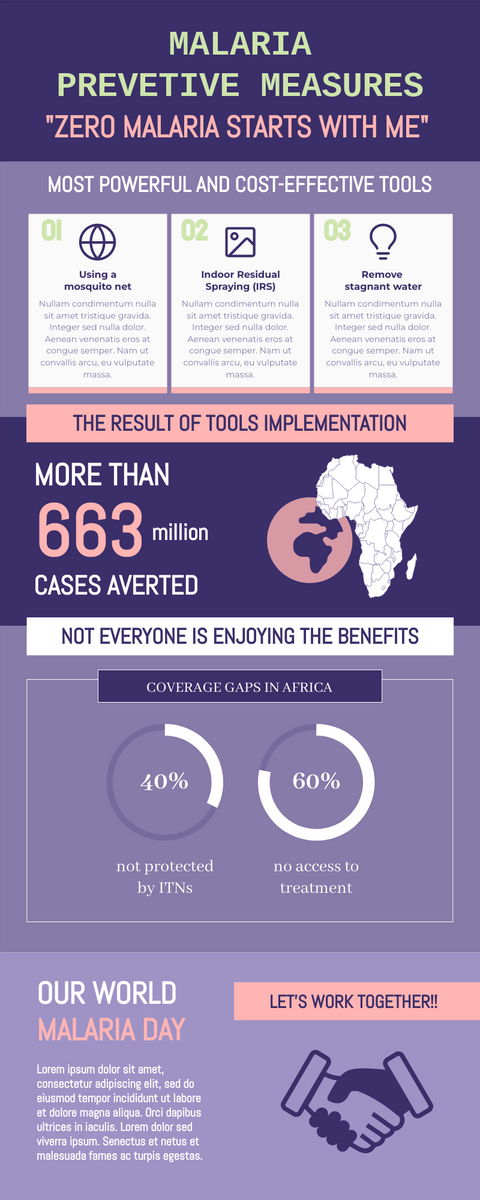Malaria Preventive Measures Infographic
Table of Contents
hide
Malaria occurs most often in tropical regions, especially in undeveloped areas. The risk of infection for travellers depends on where they travel in their local country and the type of activity they are involved in.
Symptoms of Malaria:
- High fever (over 38.5 degrees Celsius)
- Cold and uncontrollable shaking, sweating heavily
- Headaches
- Muscle aches
- Tired or weak
- Jaundice in some cases (yellowing of eyes and skin)
- Insanity/coma
Malaria Disease Prevention
According to the mosquito’s night feeding habits, malaria transmission occurs mainly between dusk and dawn. Therefore, preventive measures need to be taken, especially during this period, to reduce contact with mosquitoes.
Here are some examples of preventive measures:
- Wear long-sleeved shirts and trousers to cover most of your body.
- Use insect repellents containing more than 30% DEET on unspoiled skin.
- Burn a mosquito coil or hang a mosquito net around your bed when you fall asleep.
- Spray insecticides where mosquitoes may breed.
- Avoid places where malaria is prevalent whenever possible.



